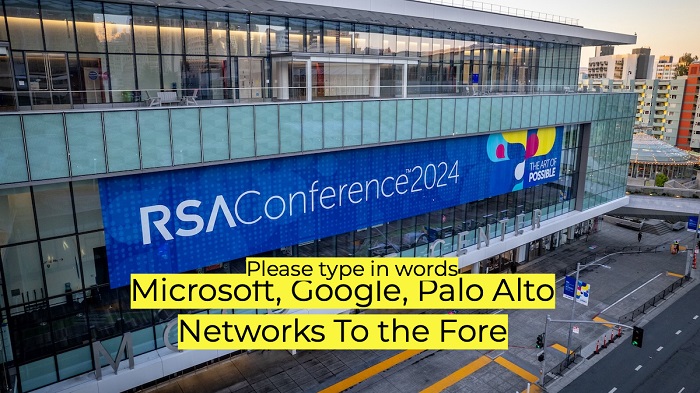During the three-day event, several celebrities shared new ideas on securing data with the help of AI)
For the second year in a row, several companies shared their perspectives on the future of securing digital data with generative artificial intelligence (gen-AI) at the three-day RSA Conference on Cybersecurity in San Francisco. Now, major companies like Microsoft and Google have announced some advances on this front.
Of course, several other companies also used this opportunity to highlight their innovations in cybersecurity to understand the perception of future threats and respond to them when they arise. Another notable event is that many companies have signed the “Secure by Design Pledge'' announced by the US Cybersecurity and Infrastructure Security Agency (CISA).
The time is right for AI in cybersecurity
Also important is the fact that these announcements from companies large and small come in the wake of a surge in new demand for cybersecurity solutions and the use of artificial intelligence and machine learning. In fact, Deloitte predicts that the cybersecurity market size will exceed $102 billion by 2032.
Meanwhile, recent research shows that most government officials believe that secure, reliable, and AI-driven solutions are essential to the future success of businesses. In fact, less than a quarter of industry players have deployed Gen-AI, making the situation favorable for large companies and startups operating in this space. That's the fact.
Google and Microsoft sought to steal the show at the three-day conference gathering top cybersecurity companies and experts, but Palo Alto Networks' unique AI system that combines Gen-AI, machine learning, and deep learning. The announcement is in many ways the biggest event of the conference.
Palo Alto Networks combines Gen-AI with ML and deep learning
No wonder, then, that the company actually resisted on the first day of the event itself. Palo Alto Networks says its new proprietary system is built on vendor security datasets and proven playbooks and is designed to deliver guided automation and actionable insights. There is. The security giant has integrated Precision AI with all existing and new capabilities across network security, cloud security, and security operations (DevOps).
Palo Alto Networks now offers the Precision AI Security Bundle, which includes malware protection, URL filtering, threat prevention, and DNS security tools, to address the potential impacts and risks associated with malicious use of AI. . It also enables you to build a secure AI ecosystem, including AI Access Security, Prisma Cloud AI Security Posture Management, AI Runtime Security, and AI-enabled Code to Cloud products.
The company said its goal is to improve compliance and minimize data breaches from development to deployment. Palo Alto Networks also introduced three new gen-AI assistants for its Strata network security platform, Prisma Cloud platform, and Cortex XSIAM platform. The First Officer will assist with Secure Access Services Edge (SASE) and next-generation firewalls (deployment, risk prioritization, remediation, threat detection, and reporting).
Microsoft raises the bar on security and governance
On the Microsoft side, we introduced updates to Microsoft Defender cloud security and Microsoft Purview data protection solutions to enhance the security and governance of Gen-AI applications. Some of the new features include AI security posture management across platforms such as Azure OpenAI Service, Azure ML, and Amazon Bedrock to identify risks, map attack paths, and alert on malicious AI activity Provides built-in security best practices for AI applications, including new detections for AI applications. Runtime workload.
The company also previewed Purview AI Hub, which provides insight into AI application usage, the total number of users interacting with AI applications, and their risk level regarding sensitive data shared with AI applications. Vendors can also preview the capabilities of his AI hub, allowing customers to discover potential AI interactions that violate corporate regulations in areas such as hate and discrimination, corporate sabotage, and money laundering.
Google's Mandiant AI consulting attracts attention
Meanwhile, Google introduced Mandiant AI consulting services. It is intended to help enterprises access the security of their AI pipelines and test AI defense mechanisms and red team responses. Mandiant may be able to help customers identify and implement ways to use AI to streamline their investigation capabilities.
The company has also come up with tool previews such as Notebook Security Scanner, which tracks visibility of vulnerability exposures in open source software, and Model Armor, which performs on-the-fly inspection and protection of models.
Among these announcements, IBM also designed initiatives to help customers take advantage of AI, with security as a core element. The company has added IBM X-Force Red Testing Services to its consulting cybersecurity services designed to test the security of Gen-AI applications. The company also plans to expand its data security and identity and reputation management capabilities.


